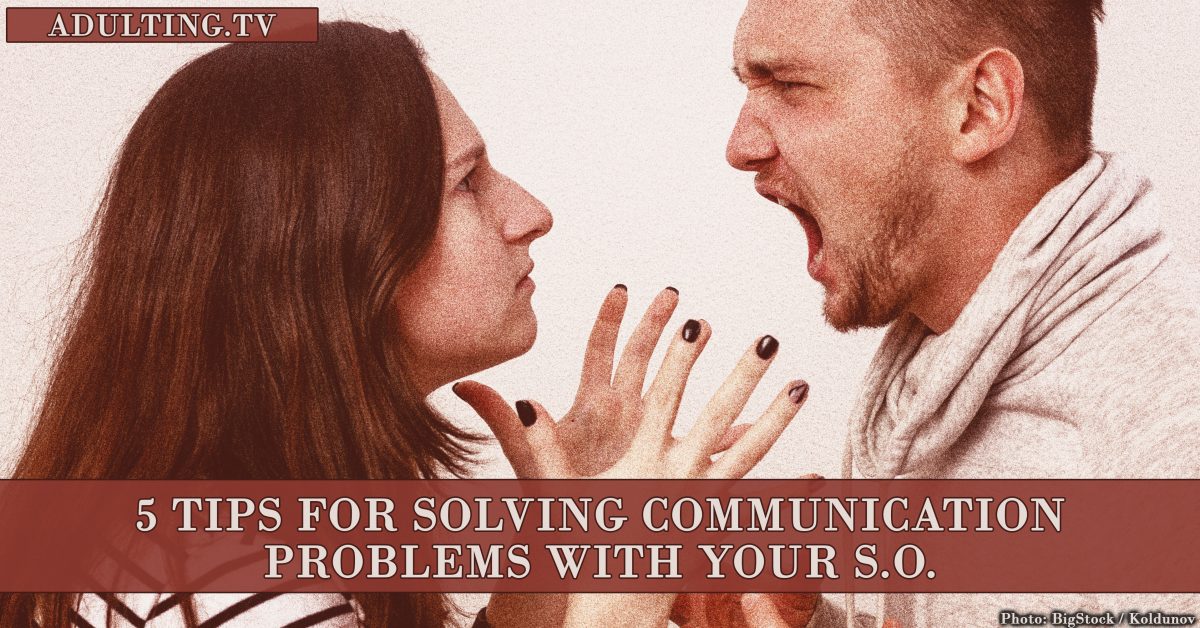The event horizon between every STR and LTR is as awkward as a prepubescent’s first kiss.
The duel inside each person pondering “do I like them” and “do they like me” makes Jack Nicholson’s Jack Torrance seem sane.
The time comes in all relationships when each must decide if theirs is a temporary or long-term ride.
How does one know when it’s time to commit to being two? Here are eight ways to tell when you and your S.O. should gel.
When your laundry detergent and fabric softener have moved in together.
More often than not, do your clothes take a spin together? When it’s no longer necessary to go home to do laundry and to own four gallons of concentrated detergent, there’s a good chance it’s time to commit to sticking together. If you’re washing each other’s unmentionables, there must be a reason you’re clinging together.
When the only vegetable in your fridge is mold.
When your home fridge is as bare as a frat house fridge, and the only thing inside that’s not questionably nuclear is your Arm & Hammer, it may be time to unplug your ice box. That Sriracha sauce must be able to survive time eternal, so grab it, cancel your electric, and take your security deposit to your new life of “we,” “ours” and “us.”
You’re cooking most meals together anyway.
When the water in your toilet has evaporated and left a ring.
Has it been so long since you did a Number One or a Number Two in your own bathroom that there’s a ring around the bowl? It’s time to sublet, sell, or cancel. Your exit plan is becoming a waste and it’s time to shit or get off the pot (all puns intended).
When your pet has moved to your S.O.’s.
If your pet has packed their bags and moved in with your S.O., it’s time for you to do so. Your dog can’t stand a minute without you, and your cat pretends they don’t care if you’re there, but both want you around. If your partner sees you more frequently than your best friend, bring everyone together and become a happy family.
When your apartment looks like a wheat farm.
If your once green and luscious plants look like they’re one mill from a cereal bowl, it’s time to transplant yourself with your someone else. Even the hardiest of plants get sad without some TLC once or twice a week. Don’t let your plants die. Consolidate them with your S.O. and make your single home homier.
Everyone wins. Especially the plants.
When your mailbox looks like your inbox.
When your postal box has as much mail as your email inbox, and the post office wants to charge you rent, it’s time to pick an address. Let’s face it, keeping that Plan B is costing you time and money. Save time and money and live with your honey.
You start saying “let’s go home” instead of “let’s go to your place.”
When you act like you have one place but still have two, it’s time to make a move. We have so many decisions to make each day that we often self-select which decisions to make and not make. When decisions about here or there, together or separate disappear, you may have unintentionally picked an L/T S.O.
Your mom knows where to send the Christmas card.
When even your mom knows you won’t receive your Christmas card before President’s Day if she uses the same address as the IRS does, it’s time to commit to your S.O. and update the P.O.
Others can often see something about us better than we can. If your friends and family see you as more permanent than temporary, it may be time to commit.
Committing to an LTR is sometimes scary, but if any of these or other quirks suggest your LTR is your reality, update your relationships status on Facebook and in your head and put in 100%.
Life is too short for 50% and maybes. When you give your relationships your all, you’ll see how much your relationship has to give. Only then will you learn if your long-term thing will be a forever thing.




![[A067] Don’t Freak: Talk Money With Boo or Bae](https://adulting.tv/wp-content/uploads/2017/04/a067-1200x628.jpg)





![[A063] When You’re a People Pleaser: Say No to Those You Love](https://adulting.tv/wp-content/uploads/2017/02/a063-1200x628.jpg)

